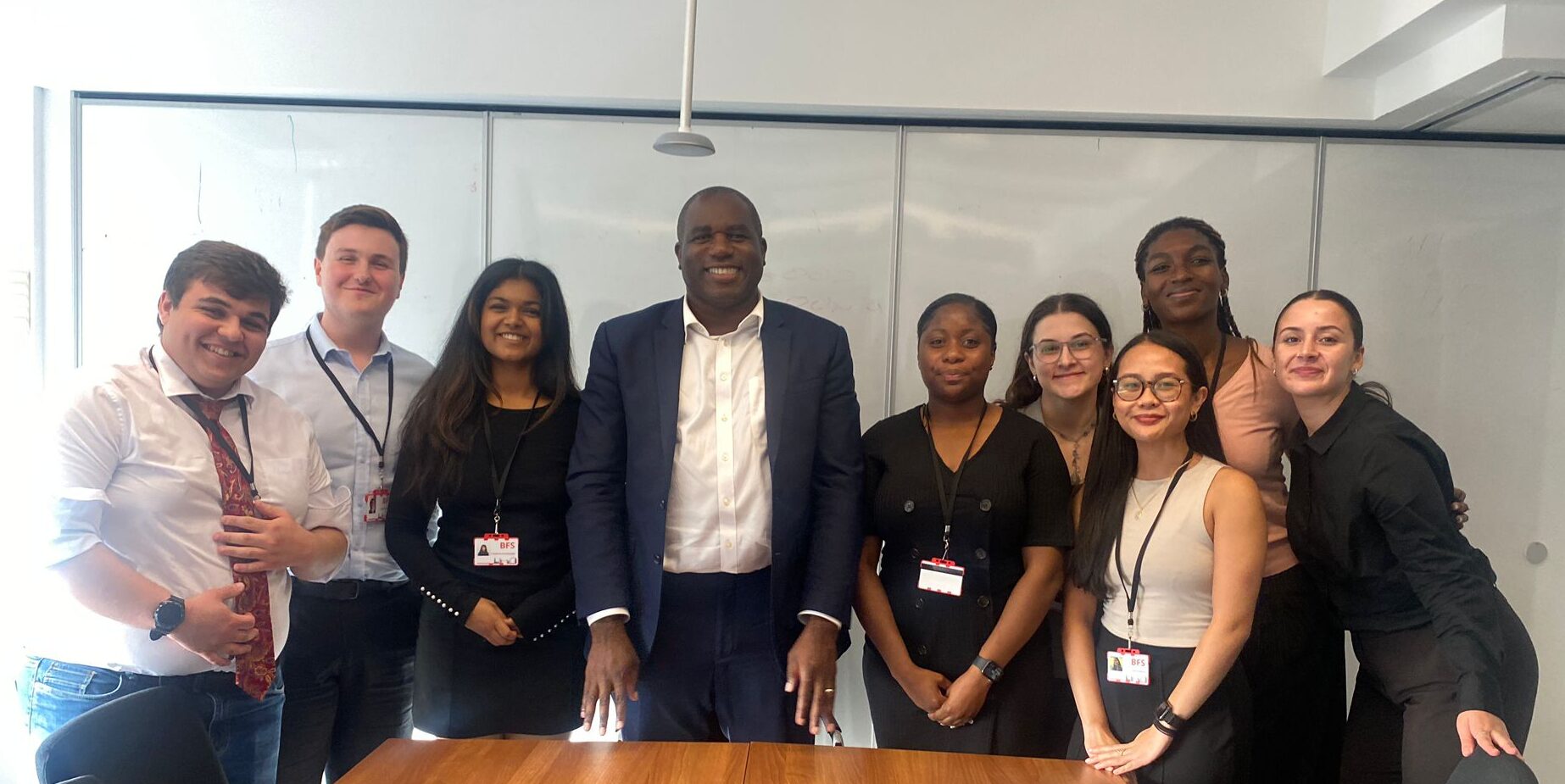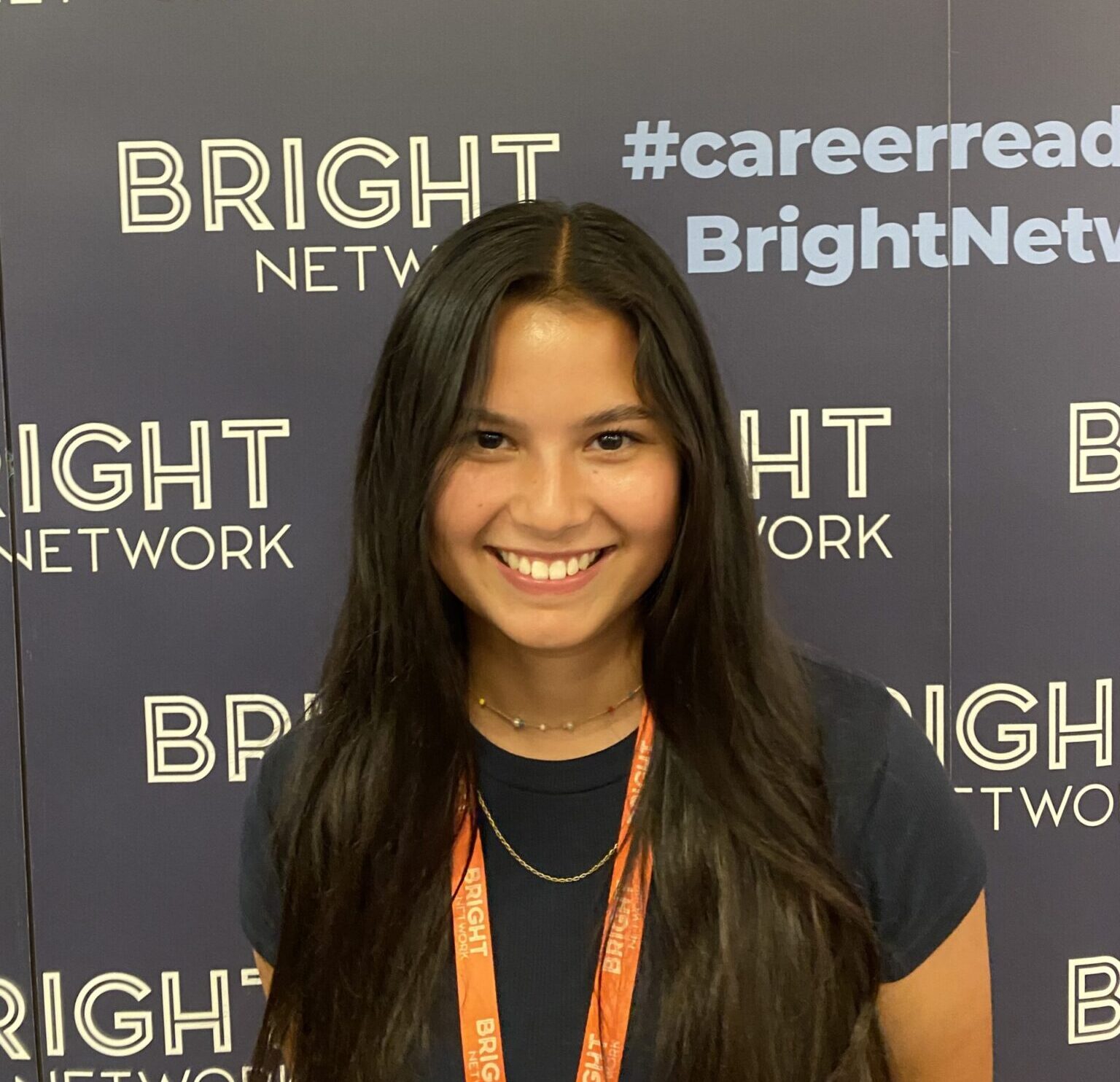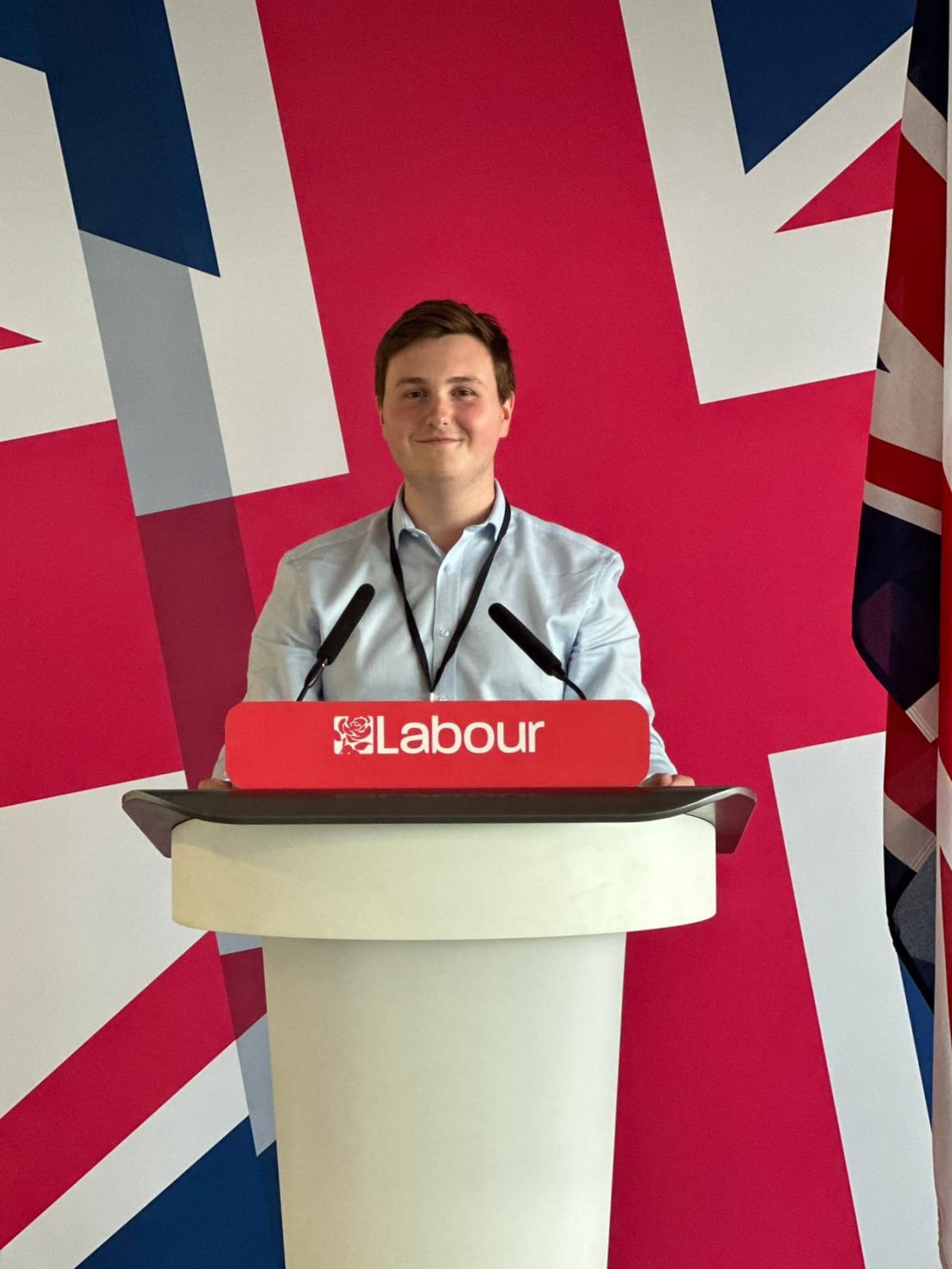“I am proud that the Government I lead is the most diverse the UK has ever seen and the Patchwork Foundation is leading the charge in making politics more accessible to all, proving that young people from any background can be at the heart of British politics.”
Alumni Spotlight: Zara Overton
What are you doing at the moment?
I’m currently undertaking a Master’s degree in Contemporary British History at King’s College London. I’m really fortunate to be studying with the Strand Group, who teach the history of the government from the inside, in partnership with 10 Downing Street. This year’s lectures have been delivered by Alastair Campbell, Simon Case, Sir Kevin Tebbit, David Cameron and Lord Blunkett. I’ve learnt firsthand about the machinery of Whitehall, the intricacies of defence policy and the mastery of governance.
What inspired your initial interest in US politics?
I’ve spent a lot of time studying the governance of large countries: Russia, India and China especially, and I’m fascinated by the federal approach the US has taken to maintaining democracy. There’s also our ‘special relationship’ – it’s impossible to study UK foreign policy without accounting for the US’s views.
What do you think are some of the main challenges facing the UK-US “special relationship” today?
Definitely Brexit. The UK was America’s ambassador to Europe and this has really affected global relations. However, the war in Ukraine has provided a new impetus for countries to collaborate. Hopefully this continues after the war ends.
You’ve recently returned from volunteering in US political campaigns in the congressional and mayoral elections. How did you find that experience?
Incredible. I really enjoyed speaking to voters and learning what issues affected them, regardless of their political leanings. It was also fascinating to experience political campaigning in a different system – the US has regular elections and a lot of time and money is spent gearing up for them. Very different to a snap election called here in the UK.
What were some of the most rewarding and challenging things about your time campaigning?
There was a lot at stake in the most recent election, especially with the overturning of Roe v Wade and changes to voting laws across different states. American politics is brutal; attack ads and protests add to the intensity. It was very stressful knowing our race was downgraded to a toss-up so every single vote counted. Some days it felt like every constituent you spoke to had opposing views and that was really difficult, but it made every positive interaction worthwhile. A lot of my best discourse was with conservative-leaning voters because we could break down barriers and have a genuine discussion about American politics.
How do you hope to apply the knowledge and skills you’ve learnt going forward?
My congressional campaign was very much focused on politics ‘across the aisle’ and this is something I’ve been focusing heavily on in the UK. We’re a very divided country right now and the next election is being fought on polarising issues. I’m always open to new perspectives and I try to actively listen to people I disagree with to see if there’s common ground. It’s not always successful but every discussion is engaging.
Why did you join Patchwork and what did you get out of the experience?
I’ve always had a passion for politics, especially seeing the effects of austerity policies in the North East where I grew up. However, I always felt excluded from political spaces and struggled to be taken seriously by my peers. I saw a post about Patchwork in a university alumni group and applied the same day. I didn’t expect to be accepted onto the Masterclass programme but it truly changed my life. Learning firsthand from experienced politicians, journalists and Civil Servants who operate at the centre of the British political system has provided me with the confidence and knowledge I needed to start operating in the political world.
Some of our Patchwork community are interested in American politics and wider international affairs. What advice would you give a young person interested in this space? Do you have any reflections on what you might have done differently, or would have like to know before you went abroad?
Take every opportunity you get. There is so much to learn from other countries and the best way to do this is to immerse yourself in an unfamiliar system. I worked virtually during the New York Mayoral elections which meant a lot of late nights but I could experience the excitement of a campaign from home, without the cost of airfare. I experienced major problems with my trip provider and ended up travelling and working solo but it was the best decision I’ve ever made. My colleagues were so welcoming and made sure I fit seamlessly into the campaign.
Stay updated
Join our mailing list to stay up to date with all the latest!


